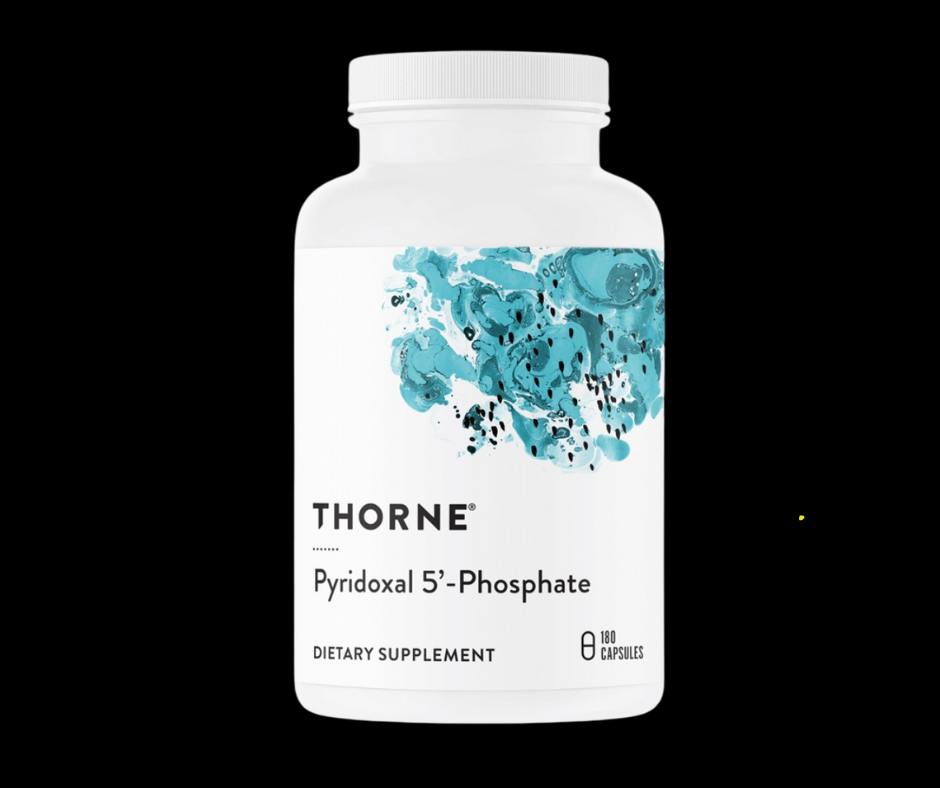Unlocking Heart Health: The Link Between Vitamin B6 and Atherosclerosis
Nov 09, 2024 
Atherosclerosis, a condition characterized by the buildup of plaque in the arteries, is a major contributor to cardiovascular diseases such as heart attacks and strokes. Recent research suggests that vitamin B6, a crucial water-soluble vitamin involved in numerous physiological processes, may play a significant role in the development and progression of atherosclerosis. In this blog post, we'll explore the relationship between vitamin B6 deficiency and atherosclerosis, review recent research, and discuss ways to ensure you’re getting enough of this essential nutrient.
What is Atherosclerosis?
Atherosclerosis occurs when fatty deposits, cholesterol, and other substances accumulate inside the walls of the arteries. Over time, this plaque hardens and narrows the arteries, restricting blood flow and increasing the risk of serious cardiovascular events. The condition is a leading cause of heart disease and stroke, and it’s often associated with risk factors such as high cholesterol, high blood pressure, smoking, and diabetes.
Comorbidities linked with atherosclerosis include diabetes, obesity, kidney disease, and chronic inflammation. These conditions often exacerbate the development of plaque in the arteries, accelerating the progression of cardiovascular disease.
The Role of Vitamin B6 in Cardiovascular Health
Vitamin B6, also known as pyridoxine, is involved in over 100 enzyme reactions in the body, many of which are essential for metabolizing proteins, creating neurotransmitters, and maintaining proper immune function. One of B6’s most important roles, however, is in the regulation of homocysteine levels. Homocysteine is an amino acid that, at elevated levels, is a well-established risk factor for cardiovascular diseases, including atherosclerosis.
When B6 is deficient, homocysteine levels can rise, increasing the risk of arterial damage. Research suggests that vitamin B6 may help prevent or slow the progression of atherosclerosis by reducing elevated homocysteine levels and supporting overall vascular health.
Research Linking B6 Deficiency to Atherosclerosis
-
Study #1: B6 Deficiency and Increased Risk of Atherosclerosis (2006) A study published in the American Journal of Clinical Nutrition in 2006 found that individuals with low levels of vitamin B6 had higher levels of homocysteine, which was associated with an increased risk of developing atherosclerotic plaques. The researchers concluded that improving B6 status might help lower homocysteine levels and reduce the risk of cardiovascular events. This study highlighted the potential therapeutic role of B6 supplementation in reducing the burden of atherosclerosis.
-
Study #2: The Role of B6 in Cardiovascular Disease (2013) A 2013 study published in the Journal of Nutritional Biochemistry further explored the relationship between vitamin B6 and cardiovascular health. The study examined patients with atherosclerosis and found that those with a B6 deficiency had a significantly higher risk of plaque formation and arterial inflammation. The study suggested that B6 supplementation might reduce inflammation and improve endothelial function, both of which are critical in preventing the development of atherosclerosis.
These studies suggest a clear link between B6 deficiency and the increased risk of atherosclerosis, emphasizing the importance of maintaining adequate B6 levels for cardiovascular health.
Screening for Vitamin B6 Deficiency
One of the primary markers used to screen for vitamin B6 deficiency is plasma pyridoxal 5'-phosphate (PLP), which is the active form of vitamin B6 in the body. Low levels of PLP are indicative of B6 deficiency and can help clinicians assess whether a patient is at increased risk for cardiovascular issues, including atherosclerosis. Another marker commonly used is homocysteine, as elevated homocysteine levels often correlate with B6 deficiency.
Dietary Sources of Vitamin B6
The good news is that vitamin B6 is widely available in many foods, and it’s relatively easy to incorporate into your diet. Some excellent dietary sources of vitamin B6 include:
- Poultry: Chicken and turkey are among the best sources of B6.
- Fish: Salmon, tuna, and other fatty fish provide a good dose of B6.
- Whole grains: Brown rice, oats, and whole wheat bread are all good sources.
- Vegetables: Potatoes, spinach, and other leafy greens provide moderate amounts of B6.
- Fruits: Bananas, avocados, and melons are also beneficial.
- Legumes: Chickpeas, lentils, and beans are excellent plant-based sources.
Including a variety of these foods in your diet can help ensure you’re getting enough vitamin B6 to support your cardiovascular health.
Vitamin B6 Supplements: Oral vs. Injection
For individuals who are deficient in B6 or at risk for deficiency, supplementation can be an effective way to restore healthy levels. B6 supplements come in two primary forms: oral and injectable.
-
Oral Supplements: Vitamin B6 is available in tablet, capsule, and liquid form. These can be found over-the-counter and are commonly used to address mild deficiencies or prevent deficiency in those at risk. The recommended dietary allowance (RDA) for B6 in adults is about 1.3 to 2.0 mg per day, but higher doses (such as 50-100 mg) may be prescribed for therapeutic purposes, particularly in addressing cardiovascular health or inflammation.
-
Injectable B6: In more severe cases of B6 deficiency or when rapid correction is needed, healthcare providers may recommend vitamin B6 injections. These are often used in hospital settings or when oral supplements are not sufficient. Injectable B6 can deliver higher doses directly into the bloodstream for quicker absorption and may be especially helpful for individuals with absorption issues or certain medical conditions like kidney disease.
Conclusion
Maintaining adequate levels of vitamin B6 is important not only for overall health but also for cardiovascular protection. Research has shown that B6 deficiency is linked with elevated homocysteine levels, a key factor in the development of atherosclerosis. Through dietary sources like poultry, fish, and whole grains, as well as supplementation when necessary, it’s possible to support vascular health and reduce the risk of plaque buildup in the arteries. For those concerned about their B6 status, it's important to consult with a healthcare provider who can assess levels and provide recommendations tailored to individual needs.
As cardiovascular disease remains one of the leading causes of death worldwide, understanding and managing risk factors like vitamin B6 deficiency is an essential step toward a healthier heart.
Stay connected with news and updates!
Join our mailing list to receive the latest news and updates from our team.
Don't worry, your information will not be shared.
We hate SPAM. We will never sell your information, for any reason.



